Delta is getting a lot of chatter and air time today.
What is the Delta variant?
It started off as the “double mutant” in India (also known as B.1.617 or Kappa), which had two worrisome mutations occur at the same time. (After further investigation, we found that “double mutant” was a terrible name because it wasn’t doubly dangerous. Read more here).
However, when the B.1.617 variant jumped from one person to another, it changed slightly and dropped one mutation. Thus, we have B.1.617.2 or better known as Delta. The concern about this sub-lineage is that the virus is showing us new ways it can mutate, evolve, and harm.
Is Delta more dangerous?
Thanks to the great work happening in the U.K., we are highly confident in some things:
Delta is highly transmissible, even when compared to Alpha (a highly transmissible variant first detected in the U.K.)
There is a reduction in vaccine effectiveness. For Pfizer, after the first shot, efficacy ranges between 15-20%. Efficacy against hospitalization after the first dose is around 70%. Efficacy remains high (95%) after the second dose against hospitalization. In other words, once fully vaccinated, the mRNA vaccines still work against severe disease.
We have low confidence in other things:
Early evidence shows that Delta can evade “natural” immunity in petri dishes. However, we don’t have “real world” data yet to confirm this.
There is early evidence of increased risk of hospitalization. And, we think this is driven by age. In other words, Delta seems to be transmitting among younger populations (that are less likely to be vaccinated).
And then there are things that we just don’t know about yet:
How well AstraZeneca and J&J works against Delta?
What this means in terms of death rates? So far, there has NOT been a substantial increase in deaths, which is obviously great news.
Situation in the U.K.
A few weeks ago, I mentioned “We need to keep on eye on Delta in places that have NOT had great vaccination campaign”. Unfortunately, I was wrong; we need to worry even among countries with great vaccination campaigns, like the U.K.
On June 6, the U.K. was 41% fully vaccinated, which is one of the highest in the world (actually 15th in the world, to be exact). The UK has 61% partially/fully vaccinated. This is mainly driven due to UK’s policy to wait longer between doses in an effort to get vaccines in more arms.
But, even given this great vaccination coverage, the Delta variant is rapidly emerging as the dominant variant. Today, it accounts for 60.01% of the virus circulating. It is replacing the dominant variant, Alpha, very quickly and doubling every 8 days.
And, because of this, the U.K. is seeing another wave. It’s not intense yet, but we are seeing exponential growth, which is worrisome. This could certainly get intense if restrictions are lifted in the U.K.
So, can this happen in the US?
Maybe. Especially if we continue to see a deceleration in vaccinations.
I’ve seen some reporters casually link the U.K. wave due to their delayed second dose policy. Then, they conclude that because the U.S. doesn’t have a delayed second dose policy, we shouldn’t worry. But, that’s just not the case. We have the same rate of fully vaccinated as the U.K. So, yes, it can happen in the U.S.
The good news is that Delta is only 6% of cases right now in the U.S. We have a terrible surveillance system, so it’s probably a little higher but still low (see green in the graphs below)
Bottom Line. Get vaccinated. Get your kids vaccinated. If you’re vaccinated but your kids are not eligible, stay vigilant and encourage them to wear masks. We need to keep transmission low so this darn thing doesn’t become dominant in the U.S.
Love, YLE





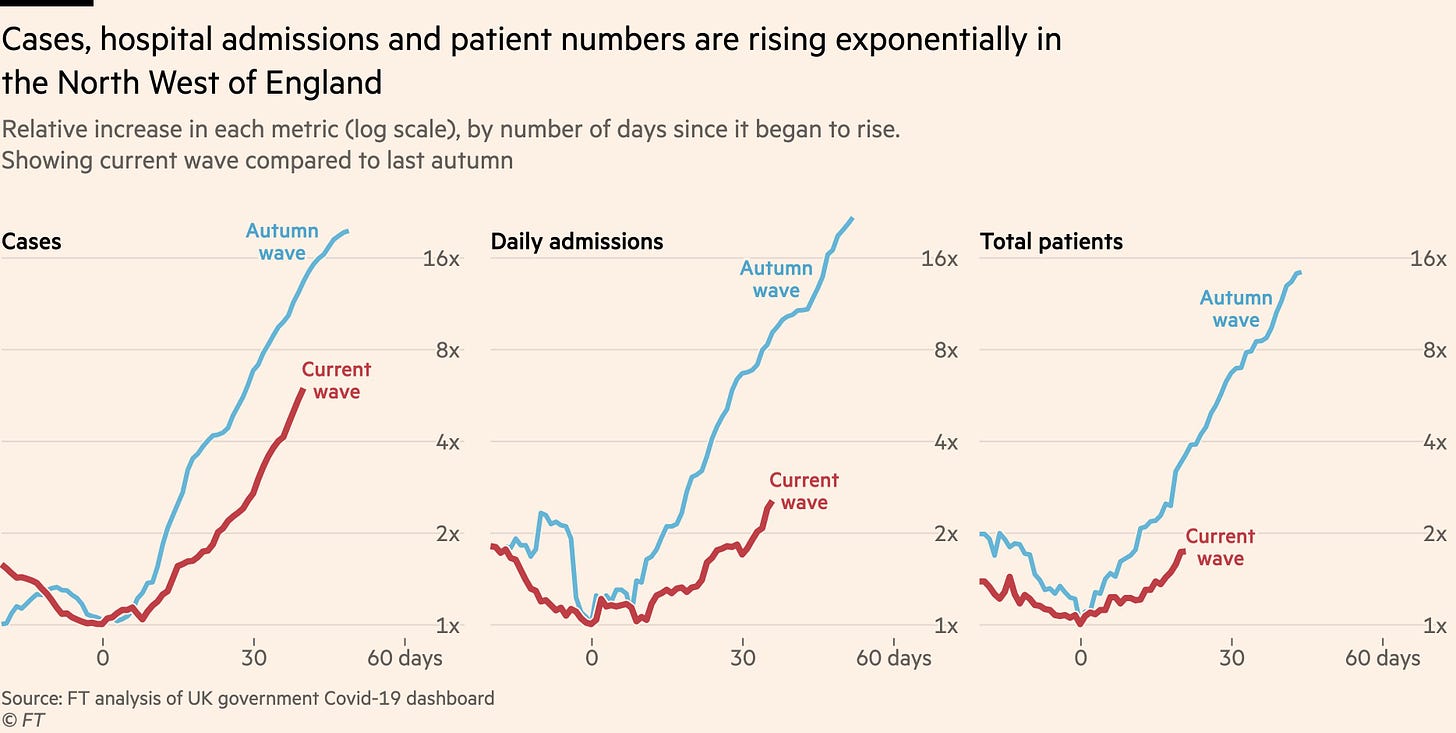
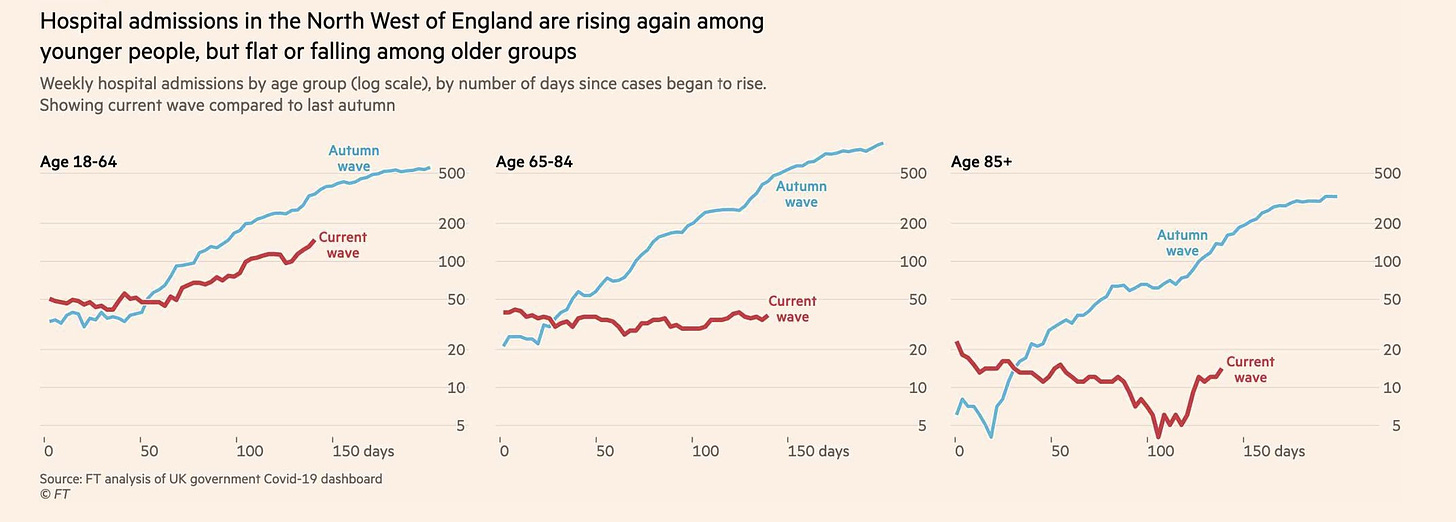
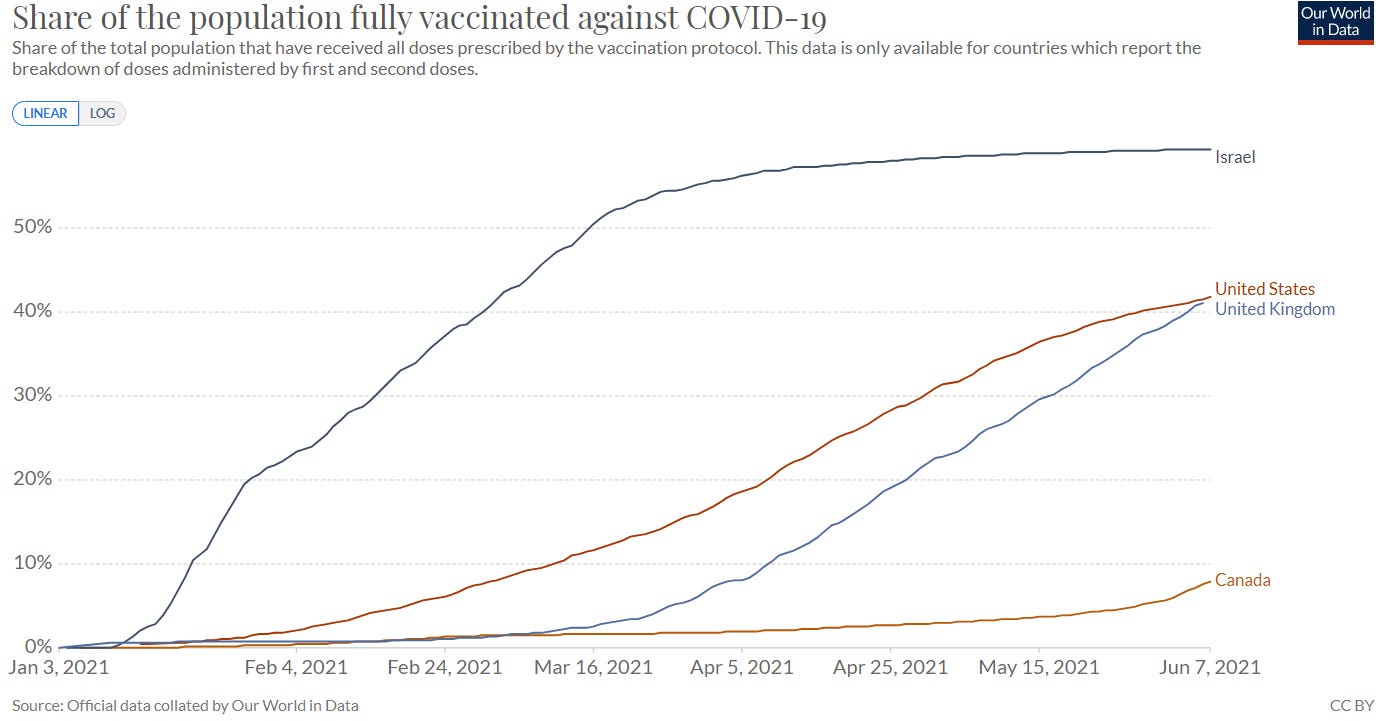
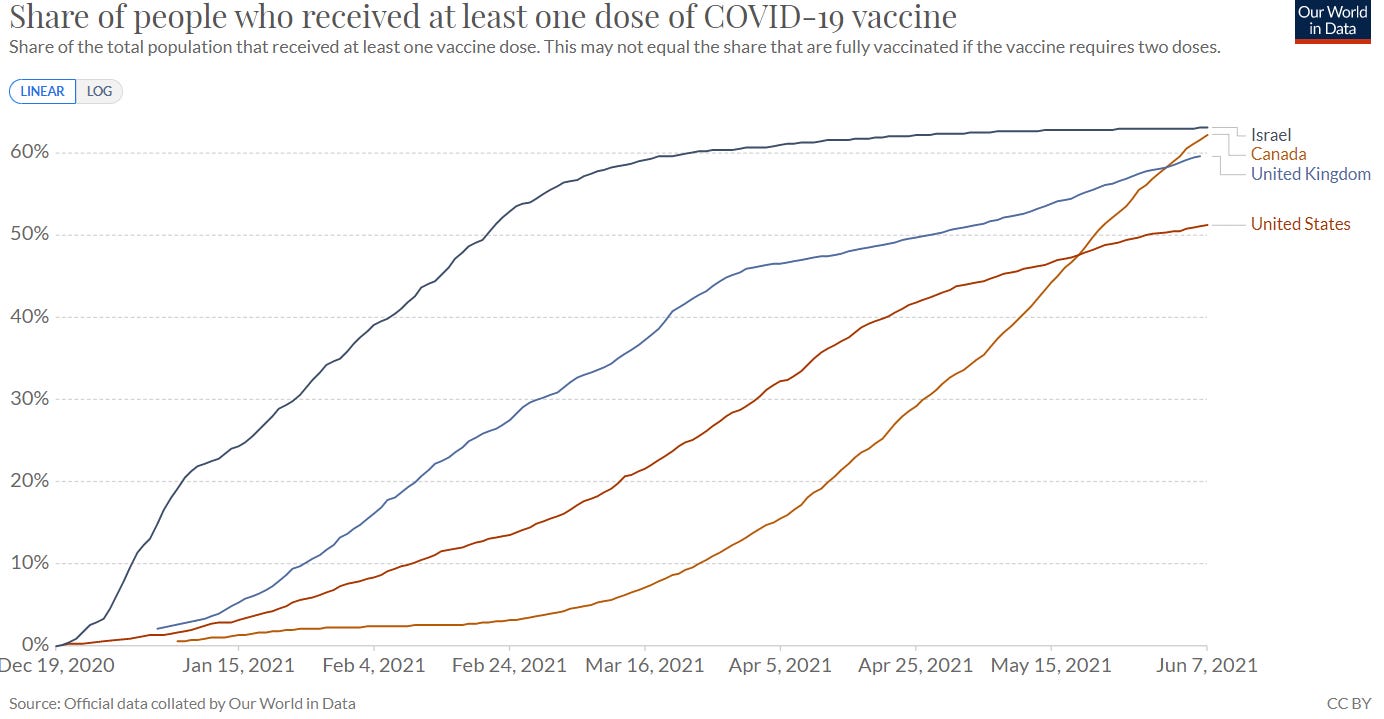
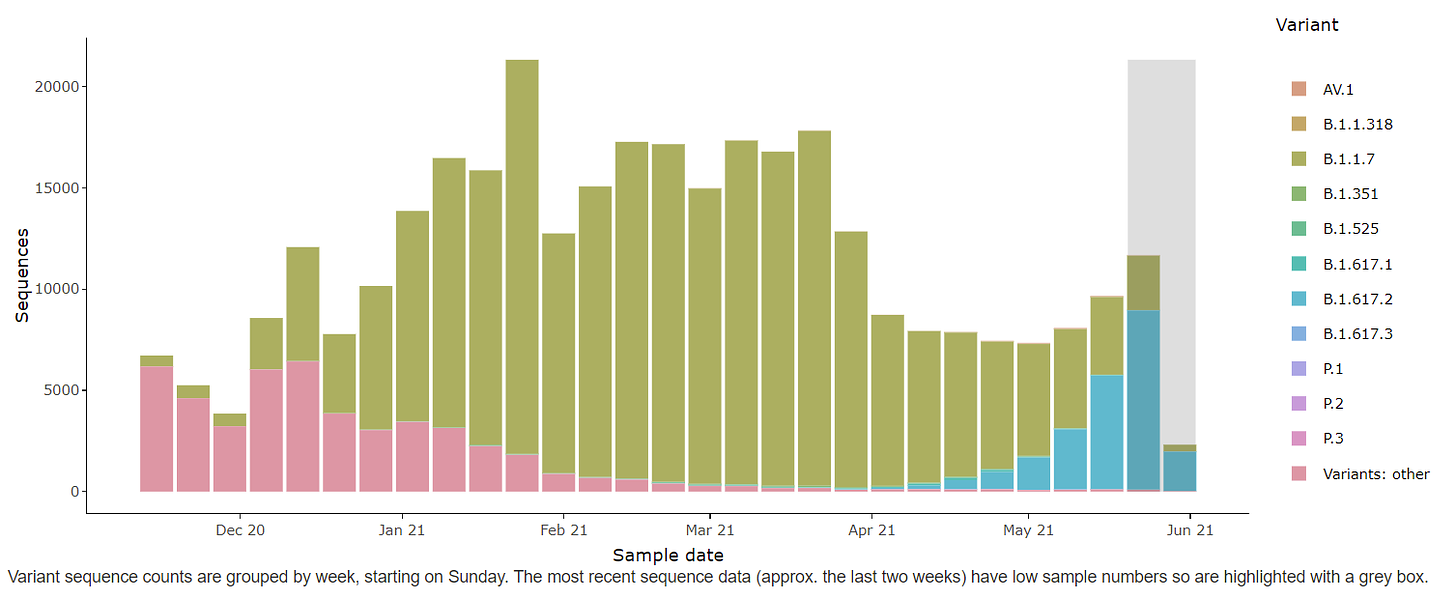
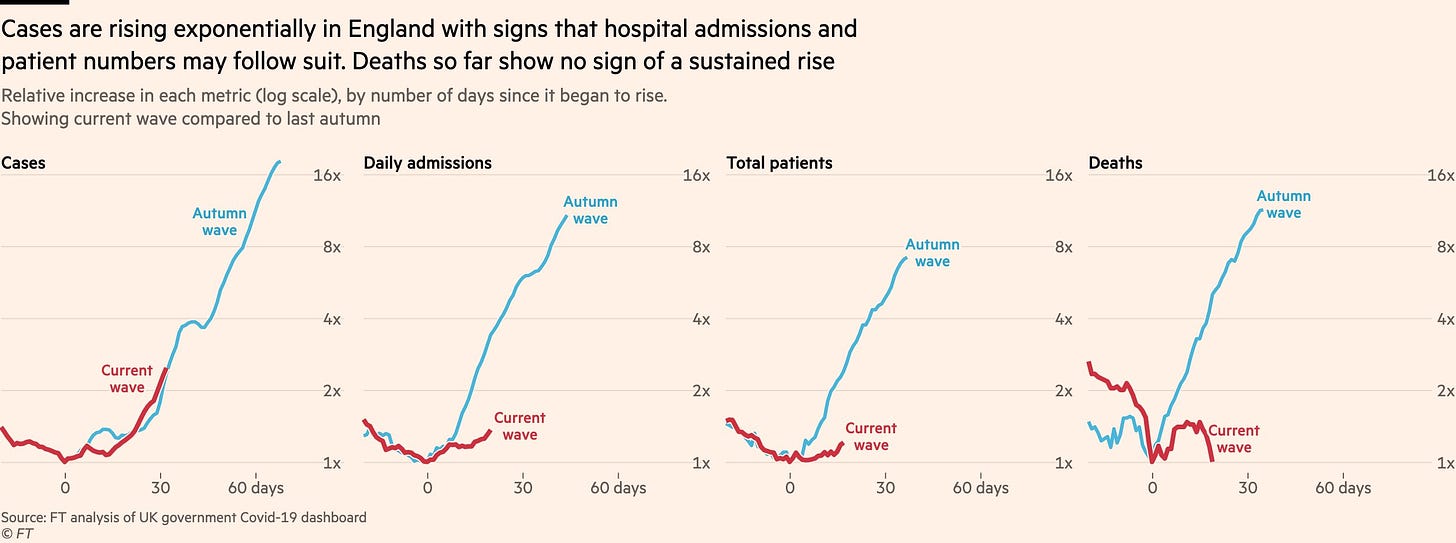
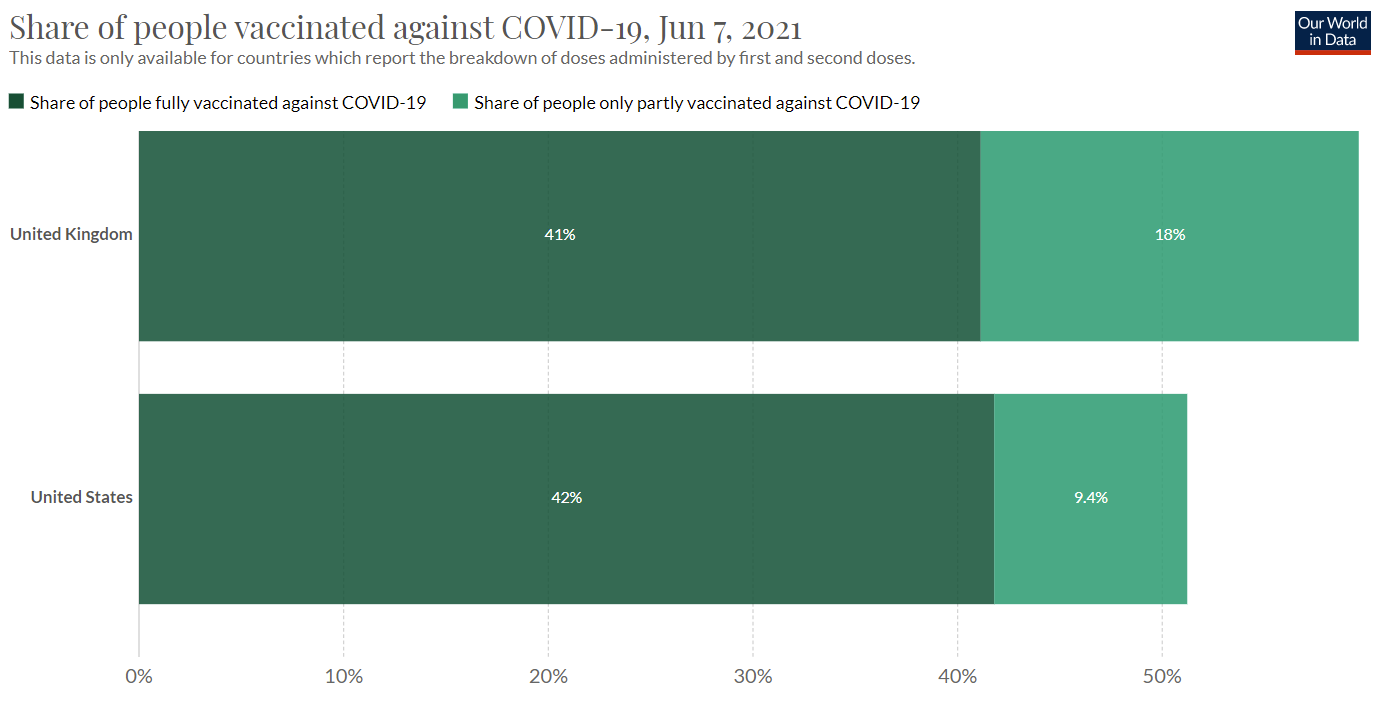

Thank you so much for your service to all of us. Thank you.
Thank you for this. Next week my family is fortunate to be all completely vaccinated. I have cried at each stick out of gratefulness. This new development still scares the crap out of me. Will we get this behind us??? I am weary from worrying.